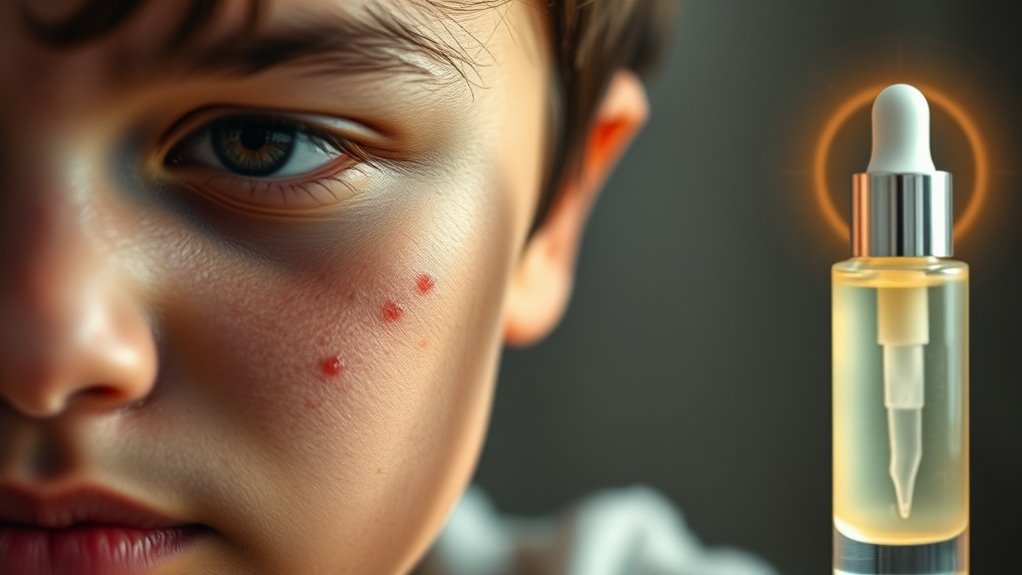Safety Considerations When Using Tea Tree Oil
While tea tree oil is known for its acne-fighting properties, it’s crucial to be mindful of safety considerations to avoid skin irritation or allergic reactions.
Always perform a patch test on a small skin area before full application. If you notice redness, itching, or burning, discontinue use immediately. Coconut oil’s antibacterial properties can complement tea tree oil in your skincare routine. Additionally, the antimicrobial properties of coconut oil can help combat acne-causing bacteria effectively.
Also, remember to dilute tea tree oil with a carrier oil, like coconut or jojoba oil, to minimize irritation. Natural antifungal compounds like coconut oil can also be beneficial for skin health.
Pregnant or nursing? Consult your healthcare provider first.
Comparing Tea Tree Oil to Other Acne Treatments
How does tea tree oil stack up against other popular acne treatments? It’s not just effective; it’s often gentler too.
While products like benzoyl peroxide can dry your skin, tea tree oil fights bacteria without that tight, uncomfortable feeling.
Here’s how they compare:
-
Benzoyl Peroxide: Powerful, but can irritate sensitive skin.





